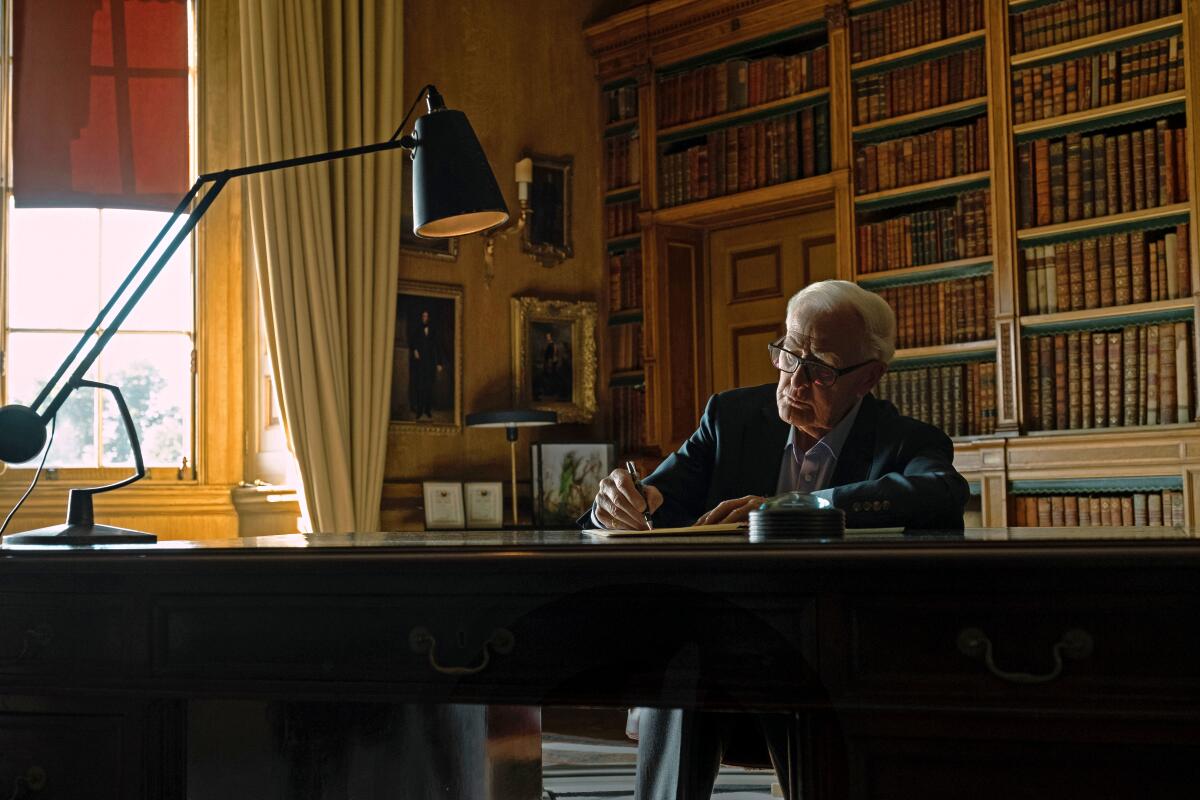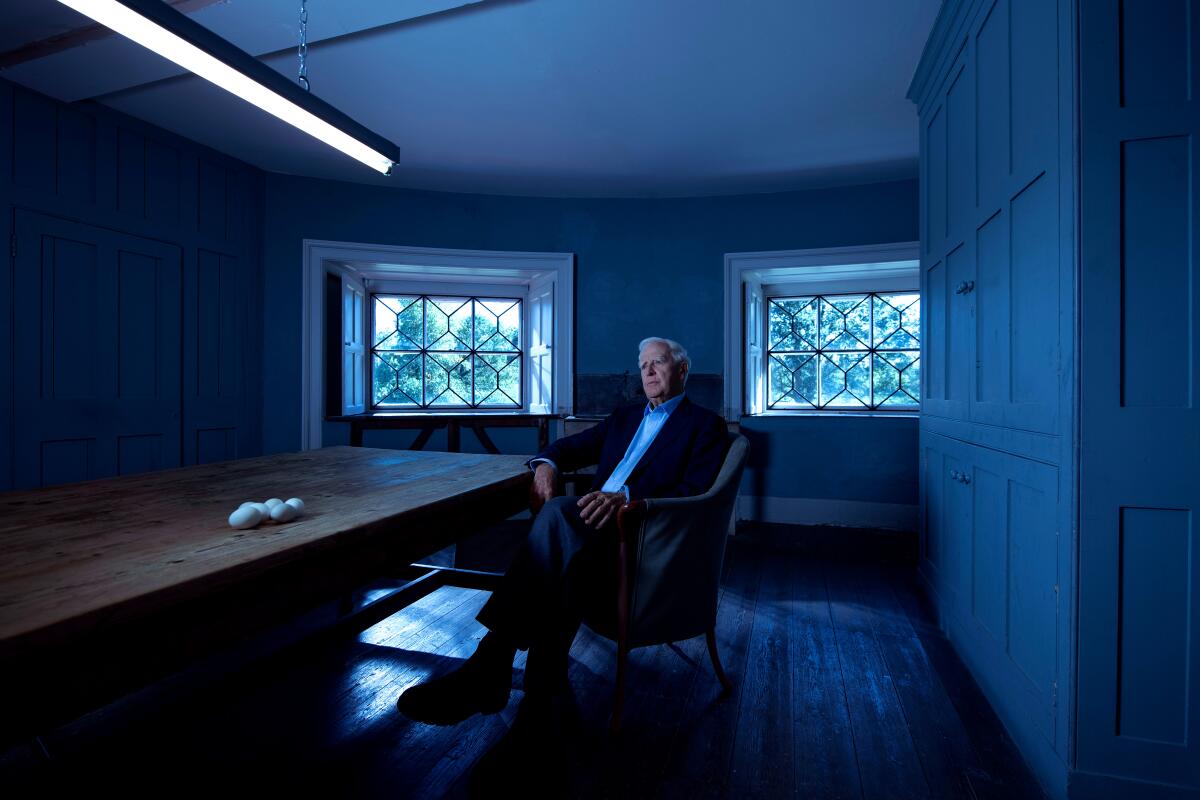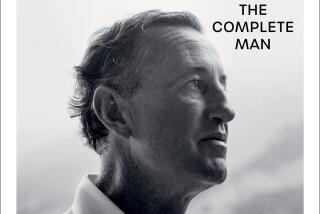‘The Pigeon Tunnel’ is spy versus spy, as clever documentarian meets cagey novelist

- Share via
The slipperiness of truth is documentary filmmaker Errol Morris’ central subject, as it was for David Cornwell, who wrote our greatest spy novels under the pen name John le Carré. In Morris’ latest film, “The Pigeon Tunnel,” these two architects of intrigue meet for a wide-ranging interview — the last significant one Cornwell gave before his death in 2020. It’s framed as the final interrogation of a notoriously private man: an ex-spook for British intelligence turned global literary lion.
But in truth (there’s that word again), Morris’ movie isn’t so much a debriefing as a very entertaining recruitment tool for the pleasures of Cornwell’s storytelling. The author’s Cold War-forged outlook on the morally porous world of dutiful lies and hidden manipulation resulted in the brutal “The Spy Who Came in From the Cold,” the mole classic “Tinker Tailor Soldier Spy” and the harrowing, semiautobiographical “A Perfect Spy,” all of them antidotes to globetrotting James Bond-ism.
This movie’s title, also that of Cornwell’s 2016 memoir, is drawn from a childhood memory of his — dramatized by Morris in one of his many stylized re-creations — that forever haunted him, of a casino/sporting club in Monte Carlo that ejected trapped pigeons from a long chute for waiting riflemen. The surviving birds then returned to their rooftop cages where they’d been born, perpetual targets in an unwitting loop. “The Pigeon Tunnel,” he says, invariably became the working title for each one of his novels.
The man responsible for that formative experience is the author’s father, Ronnie, a notorious con man who is this film’s shadow subject, his schemes and on-the-run existence priming his love-deprived boy for an alertness to deception and a keenness about lives that prioritize performance and secrets over reality and loyalty. Perched at a long table, talking to a Morris we can hear but can’t see, Cornwell tells his many stories about sharing a familial orbit with Ronnie — who late in life attempted to swindle even his bestselling son — with a bemusement dusted ever so slightly with contempt. But Cornwell also knows what being a grifter’s son gave him, quoting Graham Greene’s observation that childhood is any author’s “credit balance.” He admits his famous creation, the self-effacing master spy George Smiley, is the ideal father he never had.

His adult private life appears to be off-limits. And Cornwell isn’t exactly forthcoming about his intelligence work either, save what made him a good recruit (“a bit bad but loyal”), why turning in a Communist-agitating friend was inherently ugly yet necessary, and how his anger at the venal shabbiness of counterintelligence life awakened the writer within him. Legendary real-life double agent Kim Philby, the inspiration for “Tinker,” is another towering figure in Cornwell’s decades-long mastery at psychologizing spies and their “self-imposed schizophrenia.” But finding out years later that the famous British traitor, by then living in the Soviet Union, was an admirer of his work made him ill. “There is such a thing as evil,” Cornwell says.
The rich anecdotes, the professorial observations, the carefully phrased confessions after the director’s philosophical softballs about a life steeped in betrayal and imagination — they’re all handsomely presented in one of Morris’ most atmospheric packages. A darkly pulsating Philip Glass score (with Paul Leonard Morgan as co-composer) has never sounded more appropriate for a Morris examination. And when deploying adaptation clips, the filmmaker wisely sticks to Alec Guinness’ perfectly owlish Smiley. (No offense, Gary Oldman.)
According to press notes, what drew Cornwell to sitting for Morris was admiration for his Oscar-winning documentary “The Fog of War.” Nothing about “The Pigeon Tunnel” matches that biographical portrait’s revelatory nature — then again, it needn’t. Cornwell surely knew there was a fan in Morris, an enthusiast of the elusive as much as an inquisitor. So the old magician obliged, cagily and engagingly, and if you don’t start a reread of your favorite le Carré book after a viewing, count me shocked.
'The Pigeon Tunnel'
Rating: PG-13 for some violence, smoking and brief language
Running time: 1 hour, 32 minutes
Playing: Laemmle NoHo; also streaming on Apple TV+
More to Read
Only good movies
Get the Indie Focus newsletter, Mark Olsen's weekly guide to the world of cinema.
You may occasionally receive promotional content from the Los Angeles Times.









